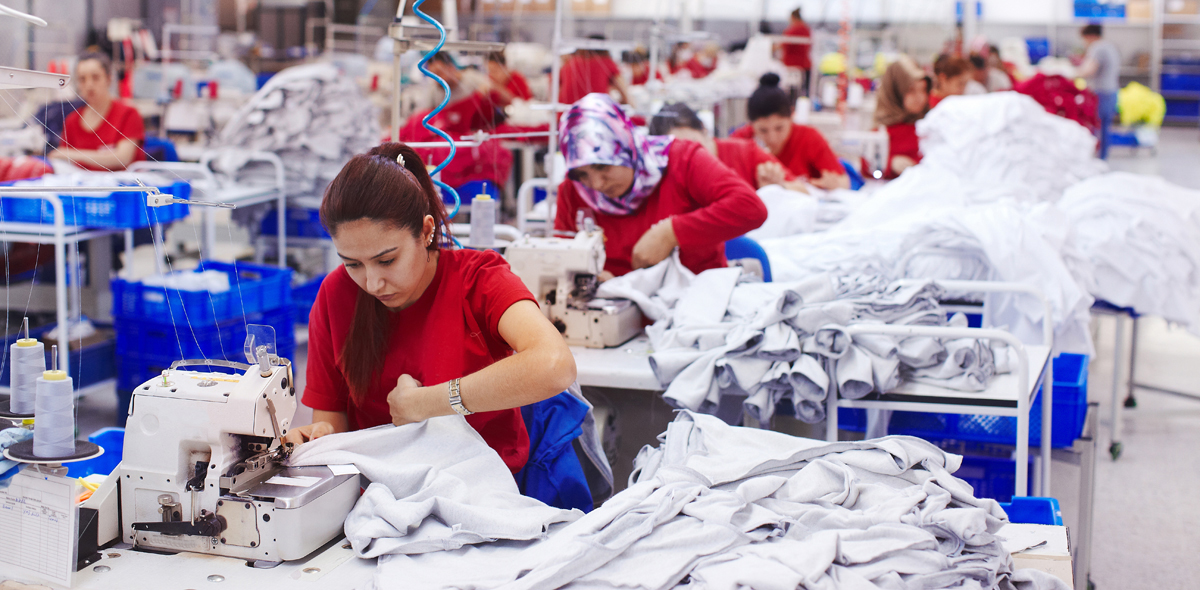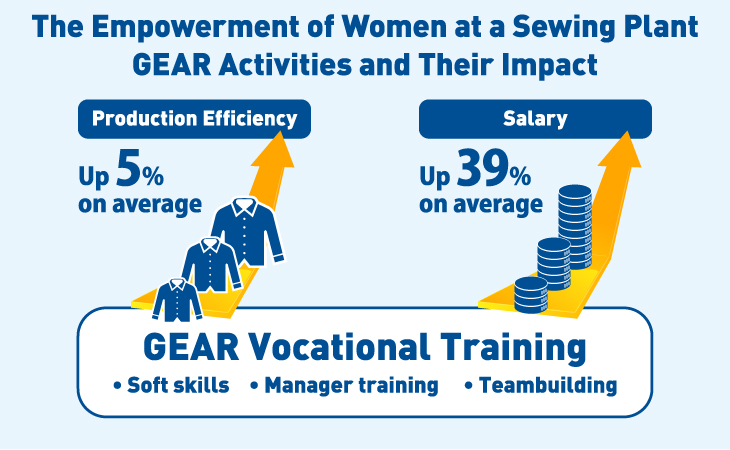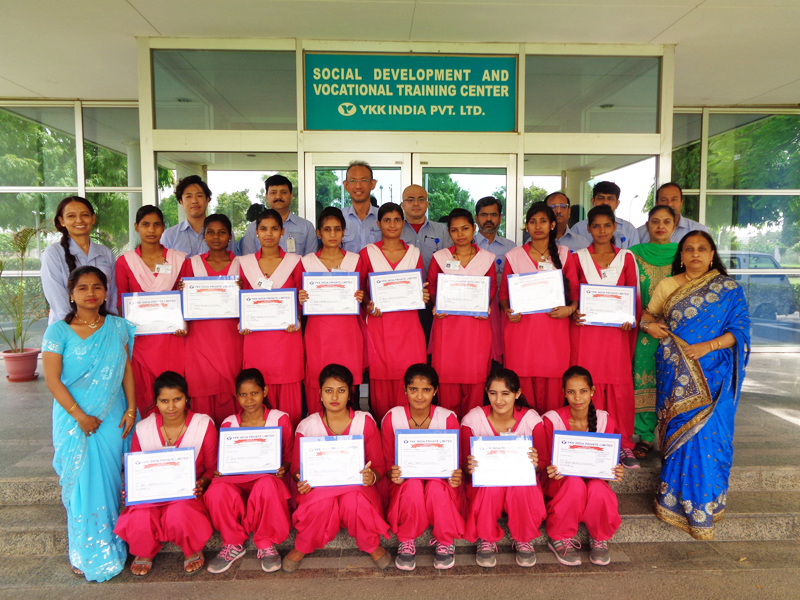Issues Facing Women in the Fashion Industry

As awareness related to gender equality builds around the world, the latest report issued by the United Nations on June 4, 2019 shows that unfortunately there are no countries yet where gender equality has been completely achieved*1.
Seventy-five percent of the estimated 60 million workers in the fashion industry are said to be women*2. Issues such as the gender pay gap, especially for women in developing countries, have been pointed out for some time.
Only 0.5–3 percent of the cost of an average item of clothing is said to go to the worker who made the item.*3 So, in the case of a T-shirt that cost €8 to make, the most that a worker is paid for making it is only 24 cents*3. This amount is far from being sufficient to maintain a normal standard of living.
Another issue is the lack of women in management-level positions. In Vietnam, which has many production plants, the ratio of women supervisors is close to the ratio of women working at a plant. However, in Bangladesh, that ratio of is only 5–10 percent*4. The truth is that it varies greatly by country.
Actions to Improve Working Conditions Appearing Globally, Including Increased Investment and Education and Training
On the other hand, it is also true that positive changes are taking place, especially in developing countries. Triggered by the 2013 Rana Plaza accident in Bangladesh, various actions to reform working conditions have started taking place, including initiatives related to gender equality*5.
The Gender Equality and Returns (GEAR) initiative was launched following the accident. To date, 144 women have undergone training under GEAR, 58 of whom are currently working onsite as supervisors. The initiative is contributing to the promotion of women's empowerment*5.
GEAR is bringing about positive changes. Efficiency has improved by an average of 5 percent at production lines led by women who have undergone training under GEAR. It has also led to an average salary increase of 39 percent for female supervisors*5.
There are plans to train 700 female operators and their managers at 70 factories. Efforts to create environments that make it easier for women to play an active role are increasing.

To further spur such initiatives, the government of Bangladesh is also starting to focus on the issue, such as by increasing its budget for women's capacity development.*6
The increase in women's income resulting from the improvement of their working conditions not only improves women's standing within the home but also contributes to better gender balance in home life*2. A stable household income leads to the education of children as well as access to appropriate healthcare. It also contributes to the achievement of the United Nations Sustainable Development Goals (SDGs).
Global Initiatives by YKK to Promote Women's Empowerment
The improvement of working conditions, especially for women, is also accelerating in India, where YKK has a plant. In 2013, the Companies Act was revised in India, obligating companies to engage in corporate social responsibility (CSR) activities. It attracted much attention on a global scale as it was the first such attempt in the world. The new Companies Act also introduced a provision related to women's empowerment. YKK, meanwhile, began CSR activities with a focus on providing support for women in 2007 even before the aforementioned revision to the Companies Act was enforced.
With low rates of literacy and enrollment as well as growing disparities in income in India, YKK has been engaging in initiatives, such as the establishment of a vocational training center, to improve the knowledge and skills of young women between the ages of 18 and 30 living in the vicinity of the YKK plant in India.
English, basic computer skills, sewing machine operation and hand-stitching are some of the courses taught at the vocational center. Between 2007, when the center was established, and 2018, there have been 169 women who have completed courses there. Graduates have found employment not only at YKK but also as clerks at tailor shops and personal computer class teachers.
YKK Philippines, meanwhile, launched YKK Fastens Lives in 2017. Used sewing machines have been donated through this project to NGOs and indigenous tribes, including to Gawad Kalinga, which is involved in a project to rescue about 5 million families from poverty, and to the Manobo tribe – a huge tribal cluster. This project has also benefited more than 200 women.
 FY2018 program graduates of the vocational training center by YKK India Private Limited.
FY2018 program graduates of the vocational training center by YKK India Private Limited.
It is readily apparent that the empowerment of women makes societies even better. YKK will continue to build environments where women can work with equality and contribute to the achievement of a society in which women play an active role.